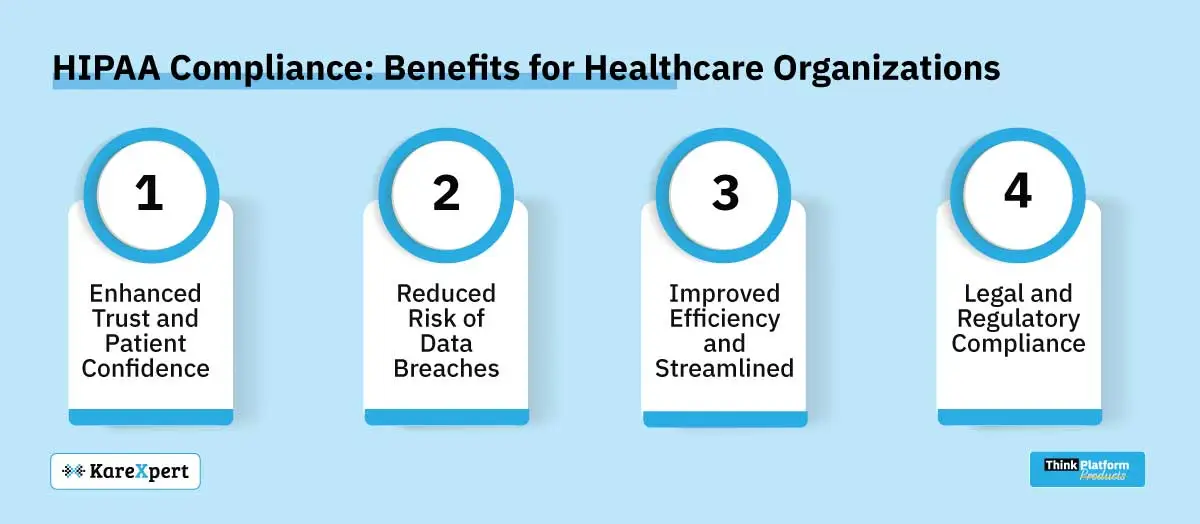KareXpert: Your HIPAA Compliance Superhero

Understanding HIPAA
HIPAA is a comprehensive set of regulations crafted to ensure the confidentiality, integrity, and availability of PHI. The act primarily focuses on two rules:
1. Privacy Rule: Establishes standards for the protection of PHI held by covered entities and their business associates.
2. Security Rule: Specifies safeguards that covered entities must implement to protect the confidentiality, integrity, and availability of electronic PHI (e-PHI).
Significance of HIPAA in Healthcare
HIPAA has had a profound impact on the healthcare industry since its enactment. It has reshaped how patient information is handled, stored, and transmitted. The primary objectives of HIPAA include:
– Protecting patient privacy: Ensuring individuals’ personal health information remains confidential.
– Enhancing data security: Implementing measures to protect the integrity and availability of health data.
– Simplifying administrative processes: Standardizing electronic transactions to improve efficiency in healthcare administration.
– Combating fraud and abuse: Establishing safeguards to prevent misuse of healthcare information.
Key Requirements of HIPAA
To comply with HIPAA, healthcare organizations must adhere to several key requirements:
1. Privacy Rule
– Patient Rights: Patients have the right to access their medical records, request amendments, and obtain copies of their PHI. They can also request restrictions on certain uses and disclosures.
– Notice of Privacy Practices (NPP): Healthcare providers must provide patients with a NPP, detailing how their PHI will be used and their rights under HIPAA.
– Minimum Necessary Standard: Use, disclosure, and requests for PHI must be limited to the minimum amount necessary to accomplish the intended purpose.
2. Security Rule
– Administrative Safeguards: Policies and procedures must be in place to manage the selection, development, and maintenance of security measures.
– Physical Safeguards: Physical measures must be implemented to protect electronic information systems and related buildings and equipment from natural and environmental hazards, as well as unauthorized intrusion.
– Technical Safeguards: Technology and its policies must guard e-PHI, ensuring only authorized individuals can access, transmit, store, and manage it.
HIPAA Compliance: Benefits for Healthcare Organizations

1. Enhanced Trust and Patient Confidence
Compliance with HIPAA demonstrates a commitment to patient privacy and security, fostering trust and confidence among patients. When individuals feel their data is safe, they are more likely to engage in open and honest communication with their healthcare providers.
2. Reduced Risk of Data Breaches
Implementing HIPAA-compliant security measures significantly reduces the risk of data breaches, which can have severe financial and reputational repercussions for healthcare organizations. Preventing breaches helps avoid costly fines and legal actions.
3. Improved Efficiency and Streamlined Operations
Adhering to HIPAA’s standardized electronic transactions and administrative procedures can lead to improved efficiency and streamlined operations. By reducing manual paperwork and streamlining processes, healthcare providers can focus more on patient care.
4. Legal and Regulatory Compliance
Compliance with HIPAA ensures that healthcare organizations meet federal and state legal requirements. This reduces the risk of legal actions and helps maintain a positive reputation within the industry.
Case Study: A Real-World Example of HIPAA Compliance
One real-world example of HIPAA compliance is a large healthcare network that successfully implemented a comprehensive security program. By adhering to HIPAA guidelines, the organization was able to:
– Conduct regular risk assessments to identify vulnerabilities.
– Implement encryption for sensitive data, both in transit and at rest.
– Train staff on HIPAA requirements and best practices.
– Develop and enforce access controls, limiting PHI access to authorized personnel only.
As a result, the healthcare network experienced a significant reduction in data breaches and improved patient trust. They also reported more efficient operations and better alignment with regulatory requirements.
Future Trends in HIPAA Compliance
As technology continues to advance, new challenges and opportunities arise in the realm of HIPAA compliance. Some future trends include:
1. AI and Machine Learning for Enhanced SecurityArtificial intelligence (AI) and machine learning algorithms can analyze vast amounts of data to detect unusual patterns and potential security threats. These technologies can enhance the ability of healthcare organizations to proactively identify and mitigate risks.
2. Telehealth and Remote WorkThe COVID-19 pandemic accelerated the adoption of telehealth and remote work in healthcare. Ensuring HIPAA compliance in these new settings requires robust policies and secure communication platforms to protect patient information during virtual consultations.
3. Blockchain for Data Transparency and SecurityBlockchain technology offers a decentralized and immutable way to store and share health data. By providing a transparent and tamper-proof ledger, blockchain can enhance the security and integrity of patient information.
Conclusion
HIPAA is a vital framework for safeguarding patient privacy and data security in the healthcare industry. By adhering to HIPAA requirements, healthcare organizations can build trust with patients, reduce the risk of data breaches, and improve operational efficiency. As technology continues to evolve, staying vigilant and adopting innovative solutions will be crucial for maintaining HIPAA compliance and ensuring the highest standards of patient care.
Is your healthcare organization ready to strengthen its HIPAA compliance? Trust KareXpert to provide the advanced security solutions and expertise needed to protect sensitive patient information effectively. Contact us today to learn more about how we can help you navigate the complexities of HIPAA compliance and secure your healthcare operations.
